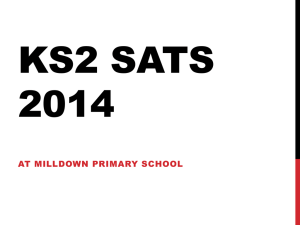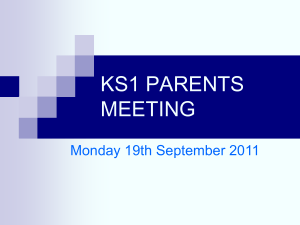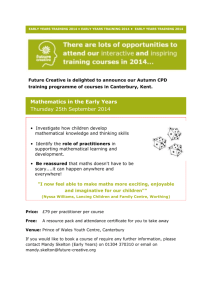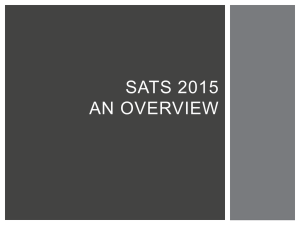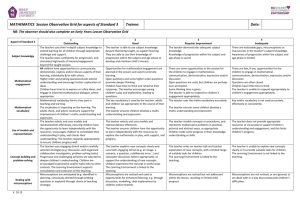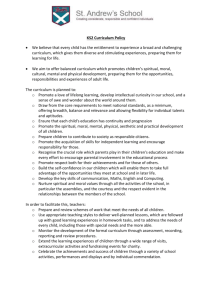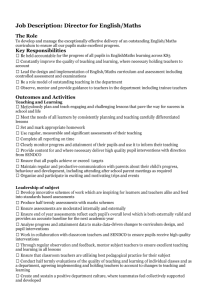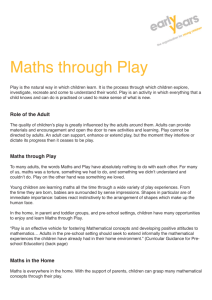Proposed changes to Maths Policy
advertisement
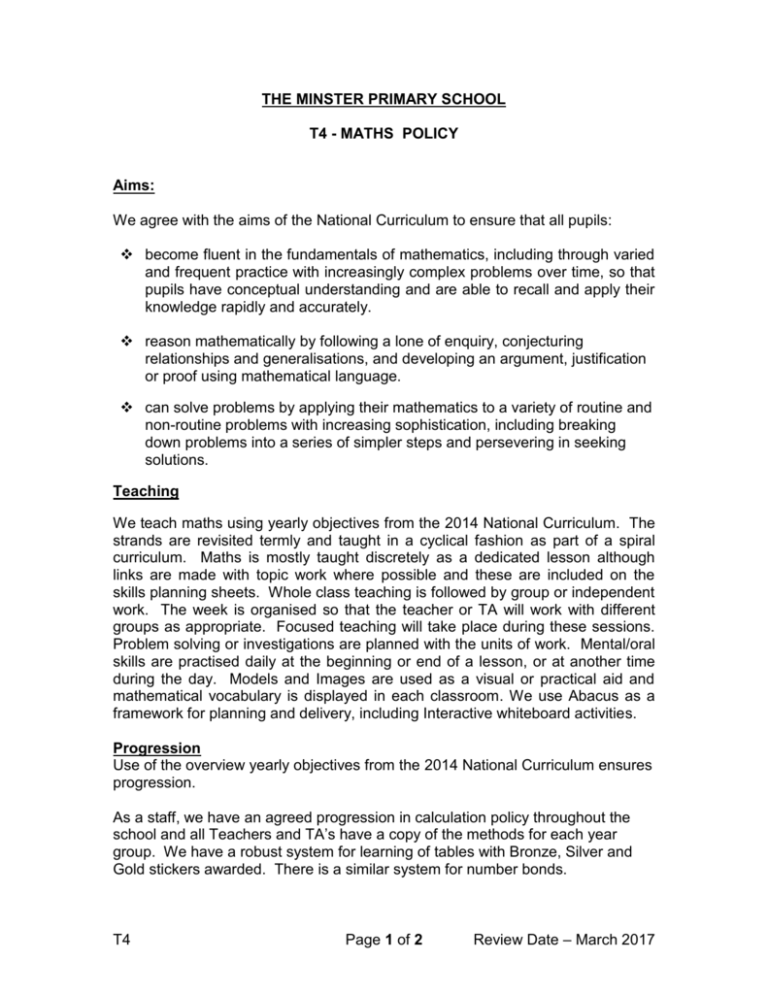
THE MINSTER PRIMARY SCHOOL T4 - MATHS POLICY Aims: We agree with the aims of the National Curriculum to ensure that all pupils: become fluent in the fundamentals of mathematics, including through varied and frequent practice with increasingly complex problems over time, so that pupils have conceptual understanding and are able to recall and apply their knowledge rapidly and accurately. reason mathematically by following a lone of enquiry, conjecturing relationships and generalisations, and developing an argument, justification or proof using mathematical language. can solve problems by applying their mathematics to a variety of routine and non-routine problems with increasing sophistication, including breaking down problems into a series of simpler steps and persevering in seeking solutions. Teaching We teach maths using yearly objectives from the 2014 National Curriculum. The strands are revisited termly and taught in a cyclical fashion as part of a spiral curriculum. Maths is mostly taught discretely as a dedicated lesson although links are made with topic work where possible and these are included on the skills planning sheets. Whole class teaching is followed by group or independent work. The week is organised so that the teacher or TA will work with different groups as appropriate. Focused teaching will take place during these sessions. Problem solving or investigations are planned with the units of work. Mental/oral skills are practised daily at the beginning or end of a lesson, or at another time during the day. Models and Images are used as a visual or practical aid and mathematical vocabulary is displayed in each classroom. We use Abacus as a framework for planning and delivery, including Interactive whiteboard activities. Progression Use of the overview yearly objectives from the 2014 National Curriculum ensures progression. As a staff, we have an agreed progression in calculation policy throughout the school and all Teachers and TA’s have a copy of the methods for each year group. We have a robust system for learning of tables with Bronze, Silver and Gold stickers awarded. There is a similar system for number bonds. T4 Page 1 of 2 Review Date – March 2017 Differentiation The needs of all children are taken into account when planning and during whole class teaching. The pace of the lesson, the use of models and images, explanations and targeted questioning ensures that children of all abilities can access the curriculum at an appropriate level. The structuring of the maths lesson allows for specific groups to be targeted. Numbers Count intervention is used as appropriate to identify gaps in mathematical understanding and to support pupils in overcoming barriers. TA’s are used to support children in all classes. More Able children are given additional opportunities for investigative/problem solving activities within class and are recommended for AG&T courses in maths. They may also be entered for the Level 6 end of Key Stage 2 test. Assessment Teachers continually monitor and assess children’s mathematical development using the national curriculum objectives and assess the level of children within a group. Written or oral assessment tasks may be given to determine their level of understanding. NFER optional SATs are used at the end of Years 3 -5 and end of KS SATs in Year 2 and Year 6. Recording White boards are widely used for starter activities and during whole class teaching. Written methods for calculation should reflect the agreed “Progression in Calculation” policy at the appropriate level for the class or individual. Resources Teachers use a variety of resources including the Abacus Scheme. There is mathematical equipment in all classes, although some is stored in Key Stage cupboards. Weight and capacity equipment is kept in the resources room. The mathsphere calculation CD is on all school computers and laptops. There are levelled maths games in all classes. Espresso may also be used for class teaching. There is a ‘Working Wall’ in each class reflecting the week’s teaching and mathematical vocabulary. Homework Homework may be set depending on the age of the children. This increases throughout KS2. Mathletics may also form part of on-going homework for KS2. Date agreed by Governors March 2010 Review date: 18 March 2014 Review date : March 2017 T4 Page 2 of 2 Review Date – March 2017

